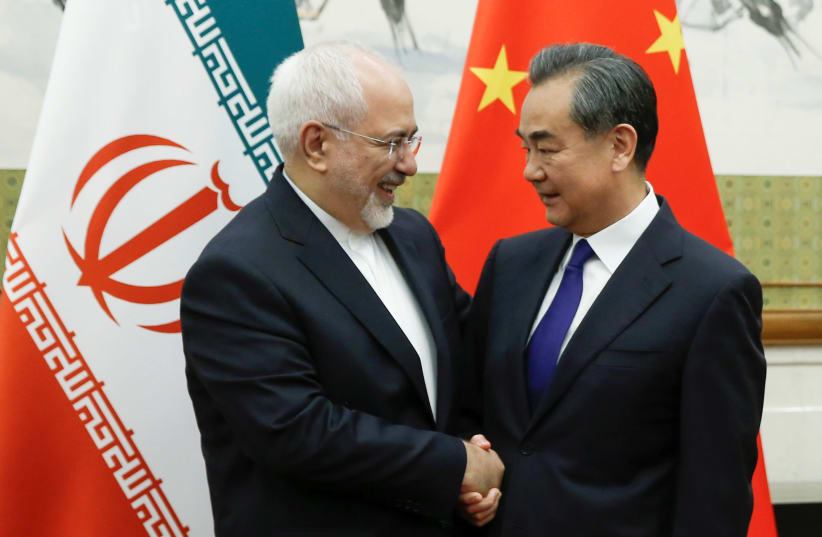Efforts by the remaining signatories - EU members Britain, France and Germany plus China and Russia - to avoid the agreement's collapse are struggling as Washington has said any firms dealing with Teheran will be barred from doing business in the United States.
"Europeans and other signatories of the deal have been trying to save the deal ... but the process has been slow. It should be accelerated," Foreign Ministry spokesman Bahram Qasemi said. "Iran relies mainly on its own capabilities to overcome America's new sanctions," he told a news conference broadcast on state TV.
European states have been scrambling to ensure Iran gets enough economic benefits to persuade it to stay in the deal, which Trump said was "deeply flawed."
Washington imposed new sanctions on Iran in August, targeting its trade in gold and other precious metals, purchases of US dollars and its car industry.
The European powers, China and Russia say they will do more to encourage their businesses to remain engaged with Iran. But the threat of the US sanctions has prompted many major companies to pull out of Iran.
Oil Minister Bijan Namdar Zanganeh said France's Total has formally left a contract to develop Iran's South Pars Gas project. "The process to replace (Total) with another company is underway," he was quoted as saying by state TV.
Total, which signed the deal in 2017 with an initial investment of $1 billion, did not have any immediate comment.
Iranian officials had earlier suggested that China’s state-owned CNPC could take over Total’s stake in the offshore project. CNPC, which already has a 30 percent stake in the deal, is an experienced onshore oil and gas producer, but is relatively new to offshore drilling.
WARY INVESTORS
Most of CNPC's experience lies in its subsidiary China Petroleum Offshore Engineering Company (CPOE), which has worked in shallow waters off north China.
"Once Total quits, that will trigger CNPC to take over automatically, according to the contract,” a senior Chinese industry source with knowledge of the deal told Reuters.
“But the question is not about if CNPC is going to take over as the operator, but if CNPC could deliver and advance the project without Total.”
China also faces challenges supplying equipment such as large-scale compressors needed for developing the giant gas project, as leading manufacturers could be barred from supplying to Iran under US sanctions.
Carmakers PSA, Renault and Daimler are also among those to suspend or drop plans to invest in Iran along with Deutsche Bahn and Deutsche Telekom
Working to maintain financial channels with Tehran and facilitate Iran's oil exports, the European Union has taken steps to counter the renewed US sanctions, including forbidding EU citizens from complying with them or related court rulings.
Washington has said Iran’s only chance of avoiding the sanctions would be to accept Trump’s offer to negotiate a tougher nuclear deal. Iranian officials have repeatedly rejected the offer.
"We do not want to revisit that nuclear deal. We want the United States to implement that (2015) nuclear deal" Foreign Minister Mohammad Javad Zarif told CNN on Sunday.
The United States will impose tougher sanctions in November which will target Iran's oil sales and banking sector.
Iran's rial currency has lost about half of its value since April because of a weak economy, financial difficulties at local banks and heavy demand for dollars among Iranians who fear the effects of sanctions.
Under the 2015 deal, most international sanctions on Iran were lifted in return for curbs on the country's nuclear program.
